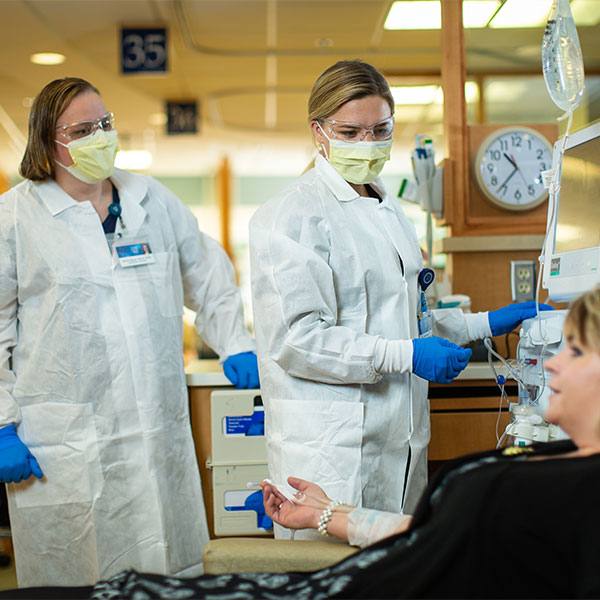-
Student-led interest group helps to build the future regenerative medicine workforce

Educating the next-generation of regenerative physician-scientists is a strategic priority of the Mayo Clinic Center for Regenerative Medicine. And, as the field advances beyond traditional management of symptoms to addressing the underlying cause of disease through curative solutions, medical education must evolve to capitalize on this ongoing evolution. At Mayo Clinic, an interest group formed by medical students is sharing new knowledge in regenerative medicine beyond the classroom.
At the recent World Stem Cell Summit, four medical students from the Mayo Clinic Alix School of Medicine in Arizona showcased their research. The students presented five Mayo Clinic Center for Regenerative Medicine posters to an international audience that included more than 2,000 physicians, scientists and bio-industry professionals.
“This educational approach highlights the importance of learner-initiated, patient-focused education, especially in a constantly evolving field like regenerative medicine,” says Saranya Wyles, M.D., Ph.D., assistant professor at Mayo Clinic and a course director for the Regenerative Medicine and Surgery curriculum. “This interest group is inspiring other students to get increasingly involved in regenerative sciences equipped with peer-developed education tools to engage the next generation.”
Mayo Clinic offers curricula in regenerative sciences across all five of its schools within the educational shield and is pioneering a patient-centered medical school selective in regenerative medicine and surgeries. The medical students who presented at the World Stem Cell Summit emerged from that selective so inspired that they have formed a regenerative medicine interest group to educate their peers on topics in regenerative medicine. The medical students, Steven Herber and Tyler Jarvis, started the group; later recruiting Jake Besch-Stokes, Christian Rosenow and Josh Spegman to serve on the leadership team. Collectively, they are increasing awareness and interest in regenerative medicine and surgery topics.

“A group of us attended the Regenerative Medicine and Surgery Selective together in 2019,” says Steven Herber, a medical student at Mayo Clinic Alix School of Medicine. “It was an experience that left us wanting to bring others together who were interested in regenerative medicine in order to increase exposure of regenerative sciences topics to students and connect students to researchers.”
While the idea of student-led interest groups is not new to the medical school, the group wanted to go beyond the tradition of hosting speakers and organizing educational events. In its first year, the group spearheaded innovative research centered on regenerative medicine education, including the formation of the medical student interest group, early exposure to regenerative science in elementary schools, and the availability of regenerative medicine curricula in medical schools across the United States. They have also built a repository of research mentors in regenerative medicine and made the list available to all students in the school, allowing students easy access to regenerative medicine experts.

This up and coming group of medical students is also looking to teach the next-generation of young learners. The group recently met with elementary school children in grades 3-6, gauging their ability to understand current fundamental concepts of regeneration and the body’s building blocks that allow wound healing and repair after injury.
“We found that the elementary aged students are excited about and able to engage in lessons on stem cell biology and regenerative medicine,” says Jarvis. “Next, we will work with regenerative medicine experts at Mayo Clinic to further develop age-appropriate curricula in an effort to inspire future scientists and physicians at a young age.”
“We’re committed to training the emerging workforce in regenerative science and technology,” says Richard Hayden, M.D., Center for Regenerative Medicine director of education. “These students are researching the best training and educational tools for regenerative medicine in order to enable future physicians and scientists to better understand and care for patients.”







